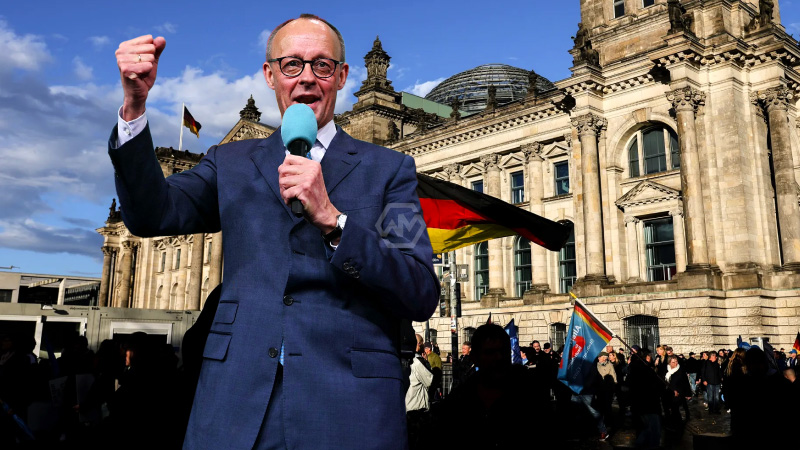- CDU/CSU, led by Friedrich Merz, wins German elections with 28.5% of the vote.
- AfD doubles its support to 20.5%, the strongest far-right showing since WWII.
- Coalition talks begin as mainstream parties reject working with AfD.
Germany’s latest election marks a turning point, with the conservative CDU/CSU securing victory while the far-right AfD made unprecedented gains. The results reflect deep voter dissatisfaction, particularly over economic stagnation and immigration policies.
Friedrich Merz, set to become the new chancellor, faces an uphill battle in negotiating alliances, likely with the center-left SPD and the Greens.
Germany Faces Political Uncertainty After Election Upset
The election results have sent shockwaves across Germany, with the AfD making historic gains despite longstanding resistance from mainstream parties. While the CDU/CSU remains the dominant force, their inability to govern alone forces them into tough coalition talks. The SPD’s significant losses mark a decline in traditional center-left politics, reflecting broader European trends.
Economic concerns were central to this election, with many voters frustrated by stagnation, inflation, and energy costs. The AfD capitalized on these issues, particularly in eastern Germany, where they emerged as the leading party. Their strong performance, however, deepens divisions, raising concerns about future governance and policy-making.
Merz has positioned himself as a pro-European leader, emphasizing Germany’s need for strategic autonomy. His approach contrasts with the AfD’s nationalist stance, which calls for stricter immigration policies and a more isolated Germany. As coalition talks unfold, balancing these ideological differences will be critical for the country’s political stability.
The results also have implications beyond Germany, with European leaders closely watching how Berlin navigates its shifting political terrain. The AfD’s rise could embolden far-right movements across the continent, adding to the challenges facing the European Union in maintaining unity and democratic values.
Germany’s election results reflect a growing divide between traditional political forces and rising populist movements. As coalition talks progress, the country faces a critical test in maintaining stability while addressing voter concerns that fueled the AfD’s surge.
“The only thing necessary for the triumph of evil is for good men to do nothing.” – Edmund Burke



